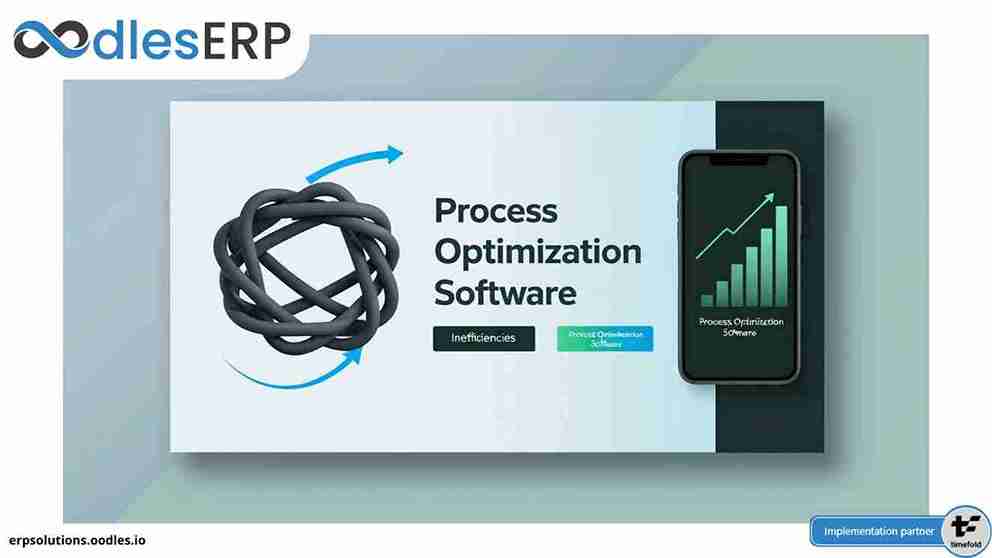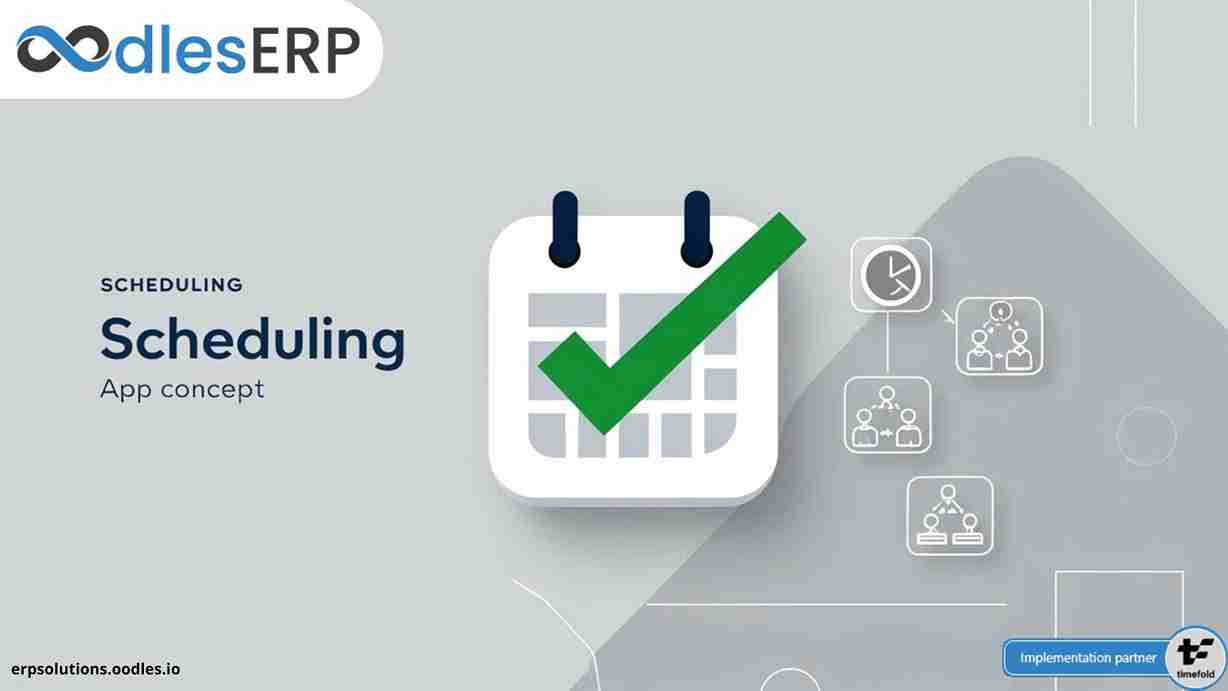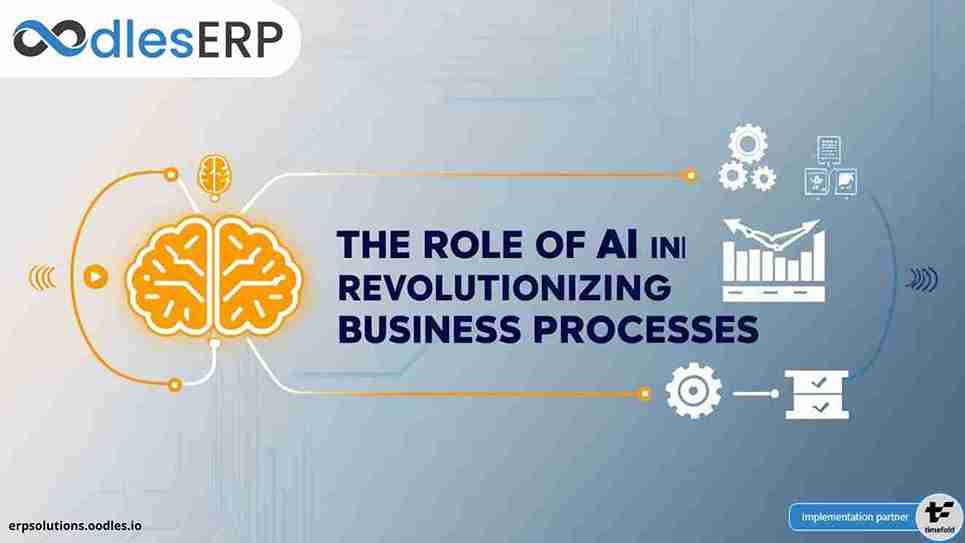As business operations are transforming with AI-driven ERP systems, the logistics industry has become a hotspot for artificial intelligence. According to a Forbes insight research, 65 percent of top transportation-focused executives believe that logistics, transportation, and supply chain are modernizing with AI technology.
In this blog post, we shall learn how organizations are using intelligent ERP solutions to revolutionize logistics and transportation businesses.

Also, Read iERP Solutions To Overcome Challenges In The Healthcare Sector
How Intelligent ERP Solutions Improve Logistics Management
Researchers have always looked for new opportunities to amplify business growth through technology adoption. Now, the way packages move around the world has changed due to tech innovations. Predictive analytics, robotics, and autonomous vehicles are a few applications working behind the transformation of logistics companies. Likewise, many logistics companies have embraced innovative ideas to gain a competitive edge in the market.
An Accenture report suggests that 36 percent of large-scale, small-size and mid-level organizations have successfully implemented intelligent ERP solutions across their logistics and supply chain units. Moreover, the numbers are bound to grow with more and more organizations embracing iERP systems to increase their business efficiency.
In the following section, we talk about some of the must-have features in intelligent ERP solutions for logistics management.
Enhanced Predictive Capabilities
AI and its subsets have increased the efficiency of companies in planning and networking. AI tools have proved their efficiency through demand forecasting and capacity planning. Accurate prediction of events allowed companies to locate demands and direct vehicles to a point that sees a decrease in their numbers. As a result, logistics companies have been able to cut down a significant amount of operational costs.
By analyzing business/customer data, it is possible to predict events, avoid risks, and create solutions. Thus, companies have easily optimized resources to avail maximum benefits. Artificial intelligence has proved its potential with quick calculations and accurate results.
For instance, UPS is a leading logistics company that has invested a good fortune to work on machine learning projects to gather and consolidate the available data. The collected data from various applications in their vast logistics network allowed better prediction of package flow, volume, and delivery status. That said, predictive analytics tools enabled better planning with fewer risks.
Also, Read Intelligent ERP Software Development To Strengthen Workforce Management
Big Data For Improved Logistics Analytics
Big data analytics is a quintessential part of intelligent ERP solutions and is increasingly useful for companies in the logistics sector. Also, logistics companies rely on several moving parts that may create bottlenecks at some point. To address this problem, big data analytics turned out to be an effective solution. The AI-generated insights of big data have improved different phases of the supply chain like route optimization and shipment scheduling. Besides, transparency in the supply chain proved to be valuable to shippers, carriers, and customers.
Logistic companies also use big data to improve the delivery quality of sensitive goods. Perishable items have always been a point of concern for delivery carriers. Through big data and the Internet of Things (IoT), companies have found a way to tackle this challenge. Advanced analytics tools provide accurate information about the condition of the goods along with real-time traffic data. Accordingly, drivers and freight operators may choose the best possible route to deliver shipments with minimal delays.
Robotic Process Automation (RPA)
Artificial intelligence and robotics go hand in hand as AI lies at the core of robotics. Although robotics seemed like a futuristic concept a couple of years back, it is now actively used in the manufacturing industry. Robotic process automation is a process of tracking, locating, and moving inventories across warehouse locations that enables manufacturing companies to tackle major labor challenges. At ground distribution hubs, RPA methodologies could be used for the effective handling of oversized packages. Deep learning algorithms have paved the way for autonomous decision-making to identify, analyze, count, and pick up various goods for shipment.
Several logistics companies have already implemented RPA techniques to automate their complex operational tasks. Likewise, several logistics companies have embraced intelligent ERP solutions to address challenges associated with labor management.
Also, Read Leveraging Intelligent ERP Solutions To Gain Competitive Edge
Accounting Work Made Easy
AI implementation in logistics and transportation helps reduce the burden on accounting teams. Many logistics firms work in coordination with third-party vendors to ensure safe and high-quality transportation processes. It results in a large number of invoices and documents that the accounting team has to manage. Intelligent ERP systems use natural language processing (NLP) to comprehend all structured and unstructured data and extract crucial information. Moreover, automating complex accounting tasks may provide better security features to companies in the logistics sector.
Conclusion
With intelligent ERP solutions at their disposal, logistics companies can optimize their workflows to significantly reduce operational costs. Leading firms like DHL and UPS have already implemented iERP in their business processes to achieve their goals and maximize ROI. Owing to the increasing popularity of intelligent ERP solutions, many small-to-medium enterprises in the logistics sector are also looking for intelligent ERP software development services.
We, at Oodles, provide end-to-end ERP application development services to solve complex business problems of our clients belonging to different industries. Our intelligent ERP software development services help enterprises sail through their routine operational challenges. We use the latest tech stack and agile methodologies to build custom intelligent ERP solutions from the ground up. To learn more about our iERP software development services, drop us a line at [email protected].









